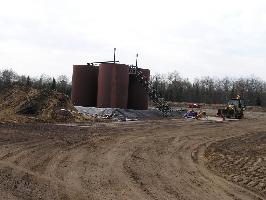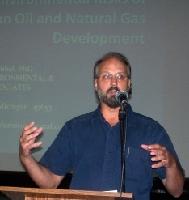Following what goes on with oil and gas exploitation in and around Adrian, Michigan since 2013 - and how these events in our little city connect to the global environmental situation... - with the occasional sidetrack to other related environmental issues in Lenawee county, Michigan and how those relate to global issues.
Wednesday, August 26, 2015
Greenpeace continues to protest against drilling in the Arctic
Greenpeace continues to protest against drilling in the Arctic playing beautiful music in front of Shell's HQ. They created a very artistic website showcasing the compositions, performances and campaigns:
https://music.savethearctic.org
In their last performance today at 12:30 GMT, singer songwriter Charlotte Church joined the young performers. You can see and the campaign on the below YouTube video. Amazing crowd! The music starts about half way in.
https://music.savethearctic.org
In their last performance today at 12:30 GMT, singer songwriter Charlotte Church joined the young performers. You can see and the campaign on the below YouTube video. Amazing crowd! The music starts about half way in.
Friday, August 21, 2015
Deep Well Injection in Michigan: Deepening Our Understanding and Exploring What We Can Do About It
Sierra Club Michigan Chapter Aug 21, 2015
What do you know about deep injection wells in Michigan? If the answer is "not much," then please consider joining us on Sep. 26 at Alma College for an important workshop about the environmental risks this activity (taking place in counties around the state) poses to our water quality and environment.

The Michigan Department of Environmental Quality has received applications for permits for deep well injection activity in more than a dozen counties. Is your county one of them? What does it mean for you and your family? Find out at our workshop Sep. 26!
WHAT: Deep Well Injection in Michigan: Deepening Our Understanding and Exploring What We Can Do About It
WHEN: Sat., Sep 26, 10am - 2pm
WHERE: Alma College, 614 W. Superior St., Alma; Room L4 of the DOW/KAPP Bldg.
Permits for injection wells containing hazardous substances posing a serious threat to water quality are increasing in Michigan, yet most people including local public officials know little about them. In an effort to educate Michigan citizens and local governments, Sierra Club has paired with Grobbel Environmental & Planning Associates to present a workshop on about the history, purpose and risks of injection wells in Michigan.

Christopher P. Grobbel, PhD, is an environmental consultant based in Traverse City and MSU professor of environmental planning and management, environmental impact assessment, environmental law, and sustainability studies.
|
Christopher P. Grobbel, PhD, will present "Deep Well Injection in Michigan: Deepening Our Understanding and Exploring What We Can Do About It" on Saturday, Sep. 26, from 10am - 2pm at Alma College, 614 W. Superior St. The event takes place in Room L4 of the DOW/KAPP building.
Grobbel will lay out the context for this activity in Michigan and then explore the environmental risk associated with it and how the public can get involved in the process. Grobbel's presentation will cover the history and regulatory framework of injections wells, the technology and geology involved in Michigan, and dangers such as spills and seismic activity.
REGISTER TODAY!
On or before Sep. 18: $25 general public/$15 students (with ID). The cost covers lunch and all conference materials.
After Sep. 18: $35 for the general public; $20 for students. Final registration deadline is Sep. 25. No walk-ins.
To register, email me at gail.philbin@sierraclub.org or call 616-805-3063. I hope to see you on September 26th in Alma!
Tuesday, August 18, 2015
Community Meeting: Nexus and ET Rover Natural Gas Pipelines
Nexus and ET Rover Natural Gas Pipelines Community Meeting
August 25, 7:00 PM
Pittsfield Township Hall, 6201 W Michigan Ave, Ann Arbor, MI 48108

ET Rover
August 25, 7:00PM @Pittsfield Township Hall, 6201 W Michigan Ave Ann Arbor, MI 48108
ET Rover and Nexus are proposed pipelines that will carry fracked gas along parallel routes from
Pennsylvania through Ohio, Michigan, and into Ontario, Canada. A panel will present landowner, law, and environmental perspectives on the pipelines, followed by a Q&A period for additional questions or concerns.
This meeting is supported by: FOOD & WATER WATCH (www.foodandwaterwatch.org)
THE SIERRA CLUB (www.sierraclub.org/michigan)
Monday, August 17, 2015
Environmentally Concerned Citizens of South Central Michigan (ECCSCM) Water Monitoring Results, 8.12.15
ECCSCM completed its third round of water monitoring tests for our 2015 Water Monitoring Project on August 12, 2015. We are monitoring 8 sites in the Bear Cr./Black Cr./Raisin and lower (MI) Bean Cr./Tiffin/Maumee watersheds this year.
Please find the results on the spreadsheet attached. Numbers in bold either meet or exceed MI water quality standards or the EPA-recommended maximum levels. All eight sites had excessive phosphorus levels. Multiply the orthophosphate (PO4) result by .3262 to obtain P. Michigan does not have water quality standards for phosphorus for non-point sources, but it is <1 mg/L (ppm) for point sources (industry, municipal wastewater treatment plants). The safe level for aquatic life is <.05 mg/L, and the danger level is .1 mg/L. Four sites, Deline Dr. Extension, Durfee Cr., Shierson Dr., and Rice Lake Dr., had levels at or above 1,000 mg/L which is the MI limit for partial body contact - E. coli. Three sites, Carter Dr., Silver Cr., and Shierson Dr., had nitrate levels that were either at or above the MI water quality standard. Four sites, Rice Lake Dr., Bovee Dr., Durfee Cr., and Carter Dr. had dissolved oxygen levels that were below the MI water quality standard for warmwater streams, and two - Rice Lake Dr. and Durfee Cr. had levels that were too low to sustain aquatic life. Dead fish were reported at the Rice Lake Drain sampling site. This observation was reported on 8.12.15 to MDEQ, USF&W, and DNR. In addition to excessive E. coli, excessive phosphorus, and extremely low dissolved oxygen, the ammonia level at Rice Lake Drain was .3 mg/L. From the EPA: "Manure, and wastewater containing manure, can severely harm river and stream ecosystems. Manure contains ammonia which is highly toxic to fish at low levels. Increased amounts of nutrients, such as nitrogen and phosphorus...can cause algal blooms which block waterways and deplete oxygen as they decompose.This can kill fish and other aquatic organisms, devastating the entire aquatic food chain." 
In fact, the test results at seven of our sites showed the presence of ammonia, and the highest level was at the Deline Drain Extension.
A picture of one of the dead fish at Rice Lake Drain
The results can be downloaded here.
Saturday, August 15, 2015
One Year In FLIR: Exposing Invisible Fracking Air Pollution
By Hillary Lewis, www.earthworksaction.org
August 13th, 2015

August 13th, 2015

One year ago, thanks to the generous support of Earthworks members, we bought a FLIR Gasfinder camera to expose otherwise invisible air pollution from fracking and drilling operations.
With this camera, we are able see what industry is trying to hide, and show that fracking isn’t clean or safe. We put the results of this technology in the hands of everyday citizens living with oil and gas in their backyard so they can see what’s really going on and demand action.
We call it the Citizens Empowerment Project.
Read the full story here.Study: Fracking In The Delaware River Basin Would Threaten Health Of 45,000
By Natasha Geiling, www.thinkprogress.org
August 13th, 2015

Download the Study here.
August 13th, 2015
Encompassing the longest free-flowing river in the eastern United States, the Delaware River Basin also happens to sit partially on top of the Marcellus Shale, the second largestgas field in the world. To date, a moratorium put in place by the Delaware River Basin Commission has kept gas companies out of the Delaware River Basin — but environmental groups worry that without a permanent ban, the basin could be opened to fracking at a moment’s notice.

Now, a new study seeks, for the first time, to quantify the environmental impact of opening the Delaware River Basin to fracking — and what natural gas extraction could mean for the communities that call the region home.
Read the full story here.Download the Study here.
Subscribe to:
Posts (Atom)

